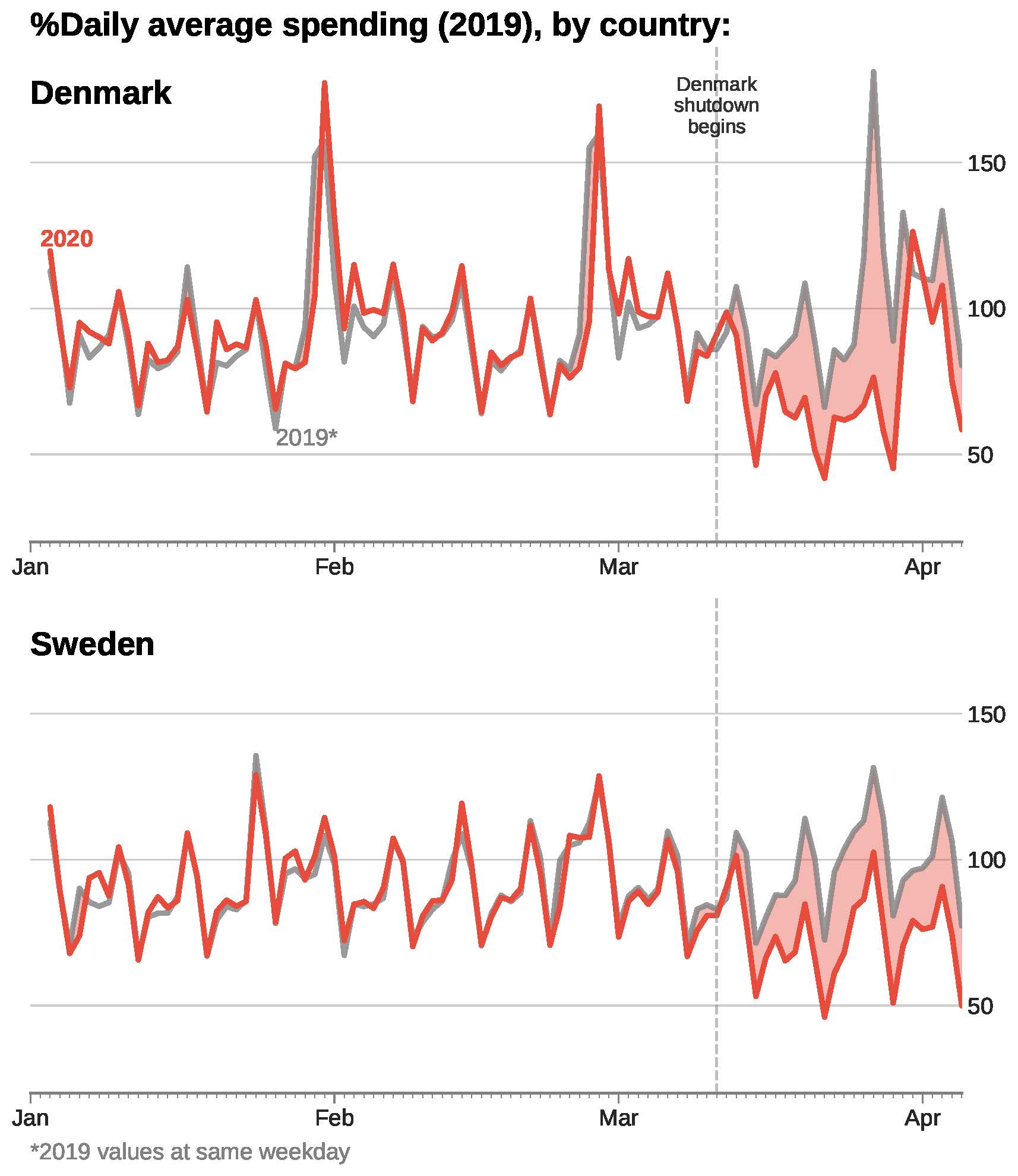Social distancing laws cause only small losses of economic activity during the COVID-19 pandemic in Scandinavia
Social distancing laws that close down private businesses are often viewed as sacrificing the economy in order to save lives from Covid-19. Consistent with this view, many countries have experienced huge drops in consumer spending around the time that they went on shutdown. In recent research published in the Proceedings of the National Academy of Sciences, we show that these countries would likely have experienced a similarly massive drop in consumer spending even absent government interventions. Our evidence suggests that social distancing laws cause only very small economic losses beyond what would occur in their absence, while potentially saving very many lives.
In order to estimate the effects of social distancing laws, we use real-time bank account transaction data from a major Scandinavian bank. Comparing spending in Denmark, where social distancing laws were introduced, and Sweden, where they were not, we can single out the effects of the laws on economic activity.
This comparison is credible because Denmark and Sweden experience a very similar early Covid-19 outbreak. That is, it is reasonable to assume that spending and disease incidence in Denmark would have evolved in the same way as in Sweden, had Denmark not introduced social distancing laws.
Our main finding is that total consumer spending dropped by around 25% in Sweden and, as a result of the shutdown, by 4 additional percentage points in Denmark. Thus, the major cause of economic collapse in both countries was the similarly escalating Covid-19 outbreak. The similar drop in spending can be seen in the figure below, reproduced from our paper.

While the shutdown in Denmark did come at some additional economic cost, this cost is very small and suggests there is no meaningful trade-off between saving lives and saving the economy. Governments should bear this in mind when considering whether to close, re-open, or re-close their societies in response to changes in Covid-19 cases and mortality.
Our second finding is that the shutdown in Denmark had very different effects across age groups. The social distancing laws in Denmark amplified the drop in spending among young people: Young adults in Denmark cut back their spending by around 10% more than young adults in Sweden. In contrast, the shutdown in Denmark attenuated the drop in spending among the elderly: The elderly in Denmark cut back their spending by around 5% less than the elderly in Sweden.
Why did the shutdown have such different effects on economic activity across age groups? We believe that personal health concerns are the most likely explanation. Young people know that they face smaller health risks from contracting Covid-19. Hence, absent a shutdown they will cut back their activity by far less.
On the other hand, the elderly know that they face much higher risks from contract Covid-19. Therefore, social distancing laws can allow the elderly to engage in more activity by reducing the prevalence of Covid-19 and making it less likely that they will contract it. Thus, shutdowns do not make the elderly more isolated and lonely. The virus itself forces the elderly into extreme self-isolation and social distancing laws can remove the need for this.
